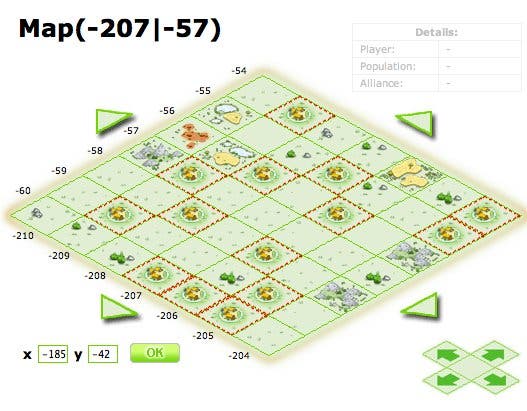Travian
It's got a lot of Gaul.
Fans of waiting need wait no longer. With Travian, you will find a game in which MMO staples like fighting, levelling and resource-management sit alongside hanging around, lingering, and generally killing time.
There's more to this free-to-play, browser-based MMO than waiting, of course: it's balanced, cleverly designed, and ripe for strategising. It's just that the game's early stages elevate the art of waiting to such a central position, it can't help but define a large part of the experience. Travian is a game in which waiting takes on heroic, blusterous proportions, a game about the unappreciated grandeur of sand trickling through the waist of an hourglass.
It's a game about building up, certainly, but also a game about counting down, clock-watching for one project to finish, while you plan where to invest your time next. Even though Travian is free, no game has ever made it so deliriously clear that time is money. The result is a civilisation game that not only steals from, but somehow manages to slyly critique, history: most of it, suggests Travian, is just people larking about while the paint dries.
None of this is immediately apparent to the new player. For the first ten minutes everything seems normal, if a little basic. Travian is a strategy MMO with a simple goal: gather resources and expand territories through alliances and warfare.
Seeing as the game is browser-based and animation-free, hardware won't be a problem; you could get it to run on a Difference Engine connected to antique telegraph wires through a modem built from a Speak-and-Spell. Travian is functional rather than beautiful: the interface is uncluttered, no winsome folkish dirge loops endlessly through your speakers, and the art is big-nosed and jolly, designed to evoke peasants rather than kings, and reminiscent of the illustrations you might find in a GCSE French textbook.

There's nothing surprising in the classes, either, whittled down to the starkest of strategic differences. Gauls mean defence and speed (though I'm pushing the semantic boundaries of that word somewhat), Teutons are fighters, and the Romans live to build, balanced in attacking and defending. Each class has its tricks (Gauls, for example, can lay traps for attackers, which can be astonishingly satisfying) but nothing is overpowered.
Once a class has been selected, the player is presented with a starting village and some basic options: build, or begin harvesting the surrounding countryside for resources. This is where Travian plays its trump card, revealing that there are two economies at work here: the material resources themselves, and the sheer time it will take you to build anything from them. That seductive granary may leave you change from your clay reserves, but it will take almost half an hour to construct, and when your workers are hacking away at that, they won't be doing much else. Once you set a building going and start looking about for something else to do, you'll quickly discover that, initially, before you've started levelling up, there isn't anything you can do. You'll have to sit tight for thirty minutes before your little picture of a granary being built turns into a little picture of a granary that has finished being built.
Think about it: when do games normally make you wait? When you're loading? When you're saving? Normally, in fact, it's the games that wait for you, shuffling their feet while you inch towards level thirty, whistling Dixie while you collect fragments of Triforce. Not here.

In my early days on Travian, I was so intrigued by the game's fascination with time, I completely forgot about the real economy, the resources themselves. After I'd spent my first morning putting up a few buildings, I ran out of these resources entirely and had to stop; there was simply nothing more I could do other than watch my reserves of lumber slowly creep back towards usable levels.
A lot of this was down to native stupidity on my part (Travian very clearly tells you the cost for each building) but it's also a sign of how jarring it can be when a game plays by its own distinct rules. I should have focused on resource-gathering first, levelling up my fledgling clay pits and woodcutters rather than going cash-happy on buildings, creating a cranny and - what was I thinking? - an embassy. Resource before building is a staple of strategy games, of course, but the consequences rarely take half a week to play out when you mess it up.

